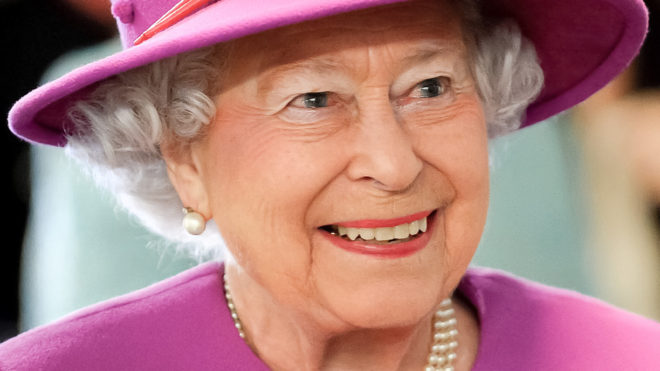In the spirit of full disclosure, mine is a British-American family. My wife was born and raised in Scotland, and I’m the only member of our household who does not hold a British passport. We like the Royals around here and agree with most Britons that the monarchy is a positive force and should remain in place.
I know that many Americans, indeed many others around the world, don’t “get” the monarchy, and therefore don’t value the institution. That’s fine, but if the Brits are happy with the arrangement, then who are the rest of us to bring it down?
Over the years, the Windsors have weathered rough patches, many of their own making. Today, as the U.K. and the rest of the Commonwealth celebrate the Queen’s Diamond Jubilee – 60 years on the throne – 80% of Brits polled express approval for the monarchy, Queen Elizabeth, and the royal family. No other head of state, including our own, even comes close.
The reason it works? The Queen herself. Here are a few Elizabethan traits that I think we as leaders could all do well to emulate:
- The Queen knows when to keep her mouth shut. She’s well aware that she was endowed with one royal mouth and two royal ears, and she uses them in proper proportion. She’s met every week, since 1952, with one of her 12 Prime Ministers, and by all accounts, she’s the one who does most of the listening, and less of the talking.
- She represents constancy and consistency of purpose. In an age when too many leaders change their “mission” more often than they do their socks, the Queen’s purpose has always been, as she said on her 21st birthday, “service”.
- While anchored in constancy of purpose, she’s not been afraid to change with the times. The monarchy has morphed. Rules and policies have been reviewed, and when deemed archaic and no longer useful, they’ve been abolished. Charles married Camilla. The Royal Yacht Britannia was decommissioned. And in October of 2011, a centuries-old rule was scrapped, giving royal males and females equal succession rights to the throne. When was the last time you asked what rules and policies of yours need to be scrutinized and possibly scrapped? And the monarchy hasn’t let social media pass it by. You can like the monarchy on Facebook, and follow it on Twitter.
- The Queen is 100% devoted to service. At age 86, she still attends more than 400 functions a year and supports more than 600 charities. She’s one of the hardest working CEO’s I know of, and she shows no signs of slowing down.
- She knows how to correct her mistakes. The Queen’s not perfect, and she knows it. When she famously misjudged the people’s reaction to the death of Princess Diana, she appeared on worldwide TV in an honest appeal for understanding. People will forgive a host of flaws in their leaders, especially when those leaders take time to explain and understand the needs of those they lead. The institution recovered, indeed rebounded from the misstep, if today’s popularity is any indication. The Queen never forgot the lessons associated with Diana’s death, and it shows in how the monarchy conducts itself today. The next time you get it wrong (if you’re like me, you won’t have to wait long), take quick action to get it right again.
- She has a sense of humor. All those who know her talk about it. The Archbishop of Canterbury was quoted as saying, ” “I found in the Queen someone who can be friendly…informal… extremely funny in private – and not everybody appreciates just how funny she can be…I think we’ve been enormously fortunate in this country to have, as our head of state, a person who has a real personality.”
- Finally, she knows what her job is – and what it is not. She said in her Christmas broadcast of 1957, “I cannot lead you into battle. I do not give you laws or administer justice but I can do something else – I can give my heart and my devotion to these old islands and to all the peoples of our brotherhood of nations.” The best leaders know what to do – lead – and not to interfere where they can’t bring value.
What Queen Elizabeth II has done, and done so well, in her 60 years on the throne, is to hold a diverse group of people together, through good times and bad, people with a wide range of political views and perspectives, to imbue them with a sense of identity, of imperfect unity, that somehow works, with varying degrees of success. That, I think, is what a leader does.
She must be doing something right. On Sunday, more than a million people braved a cold London rain to stand outside for hours to honor Elizabeth and her 60 years of service. What other CEO’s might hope for a similar tribute?
Long live the Queen.
book richard or bill to speak for your meeting
